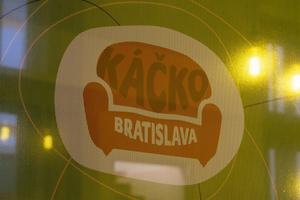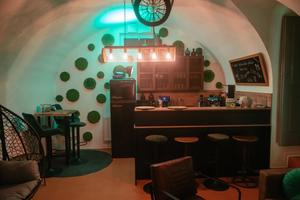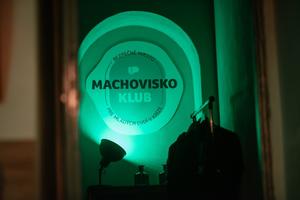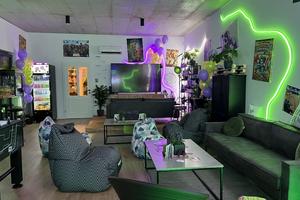We wanted for youths to carry their psychologists in a pocket, says Zuzana Juráneková, a psychologist behind the mental health helpline for young people.
“When a young person gets left alone, due to the extreme reactions to current situations their perspective for a vision of a way out gets dimmer, they may think a solution does not exist – which is not true,” Juráneková told The Slovak Spectator.
Suicides dominate the causes of deaths of people aged 15-29. When a tragedy occurs, young people are the most fragile, vulnerable ones since they still lack the experience to adapt to a working coping mechanism. Lacking the experience to manage emotions at the time of hardship, intense situations turn into immense stress that can lead to serious mental health issues.
IPčko.sk is an online crisis centre that was created as the answer to youth’s calls – quite literally. Young people can reach out via phone calls, online chat, mail and video calls. The very first step was to offer free, anonymous, and professional help: a security that someone is always there when they need help the most.
IPčko.sk declares it wants to provide help to people regardless of their economic class, time management and even physical availability. To afford a licensed therapist, to make time between classes and part-time jobs or to travel across the region is often difficult to manage for younger people. An online helpline removes most of these obstacles.
Psychologists monitor social media to find kids in need
Untreated mental health struggles can and frequently end up being fatal. It often starts with the young person feeling alone despite being surrounded by family, friends, classmates, even internet friends. The feeling grows into anxiety, deep insecurity. Since the society concentrates highly on achievement and productivity, people may feel unworthy. The pressure of playing a societal role within each group brings anxiety and tension to everyday life and even mundane tasks become impossible to manage.
Improper media framing of mental health, especially suicides, may accelerate the situation and let it spiral into an unwanted pandemic. Juráneková says suicide contagion tends to appear shortly after media report on a suicide of a celebrity, forgetting to remind young readers that suicide is preventable, and that it is no solution to any of their problems, no matter how heavy.
“It is important for the media never to disclose details, never romanticise death, never publish the process and, of course never trivialise the situation of the person that died of suicide,” stresses the psychologist. She encourages always including the helplines or at least stating that life deserves a chance. “With all the information, you’re basically handing out the manual, which mustn’t be the case.”
Mental health of children and youth has been in the public eye particularly since the pandemic. One problem Slovakia is facing is that children’s psychiatrists are scarce and thus unavailable to many. Thirteen districts of the country have no child psychiatrist and parents with children in need of a professional treatment are forced to travel for hours to get an appointment, medication or to help treat the current crisis, the Sme daily reported. Another example of poor coverage of mental health experts for children in psychiatry came to surface after uncovering unsuitable conditions in the only psychiatry hospital for children in eastern-Slovakia town Hraň, Košice region. According to former patients, the care was close to neglect and tyranny.
Therefore, when help is not available anywhere near, people turn to alternative ways. Kids, teens, and young adults spend a good portion of their time online, which can lead to them googling all these feelings or writing calls for help into the engine’s search bar. That is where IPčko’s online field team comes in.
A group of skilled professional psychologists monitor the online space every day. They try to catch people trying to find help within their comfortable communities and suggest professional counseling or lead them to their websites in order to get support, Juráneková explained Whether that place is streaming platforms or social media, psychologists reach out to young people and communicate with them in a familiar language. Like a friend to a friend. However, the dialogues are conscious sets of deliberate questions with professional standards from psychologists’ side. To these niche online groups, psychologists bring much needed qualified information.
“Despite IPčko being primary for younger people, everybody can come to us to seek help – and they do,” says Juráneková. The pandemic accelerated the positive approaches of mental health, but it remains a taboo to an extent. Though lockdowns and the lack of social contacts have exposed that mental health struggles with various intensity.
While there is still a long way to go, it has become quite normal for young people to talk about their struggles. Adults and elderly people had to challenge themselves and overcome their technological disadvantages, but they succeeded and found their way to IPčko.
“Mental health has become “trendy” during the pandemic in a way,” Juráneková says, and she is content this is the case. Incidentally, in 2020, at the very beginning of the pandemic, the term “mental health” in fact appeared for the first time ever in Slovakia, in the then emerging government’s program statement.
Low-threshold club covered in moss
Online counseling brings comfort to many, but many still prefer physical contact with their therapists. In some cases, the online team of IPčko suggests an in-person consultation is needed.
“When we pulled the people on the other side of the chat out of their worst, we had nowhere to send them,” says Juráneková. Psychological help does not end after a few dialogues or video calls, systematic long-term help is needed in order to stabilize the heavy mental state.
IPčko thus opened an intervention crisis center Káčko in each of Slovakia’s eight regions. There, free anonymous sessions are offered to both the most critical cases and everybody who feels like they need to talk. The center gives them a professionally trained person to rely on. Psychologists ponder the idea of multiple centers in one region to be fully available and more accessible, especially in larger regions.
All eight of them are low-threshold centers, meaning that the demands needed for entering are minimal. People in the care of Káčko centers do not need to hand in their medical identification or state insurance details.
Meanwhile, for people in need of disconnecting from their realities in toxic places, households, long for a sense of safety, comfort, peace and community, IPčko created the Machovisko club in Bratislava.
The low-threshold club is an unusual place unlike any standard center: it is covered in moss from roof to ground, filled with plants, sunken in a silent cozy atmosphere, and lit only by dim comfortable lights.
“Machovisko is our safe space for people to relax. All staff from people that play a game with you to those who serve you tea or bring you snacks are all psychologists,” says Zuzana Juráneková. “Informal psychology is just as professional as formal psychology, just with more added familiarity towards young people. For many of those teens and young adults, being and existing without a worry is healing,”
Machovisko provides visitors with care but also games, virtual-reality therapy and many more ways to let the steam out. The location of the club has its significance as well. Machovisko can be found in the very heart of Bratislava. All sorts of friendships and memories are made here.
The team of IPčko strives to fill out the empty spaces on Slovakia’s map with clubs like Machovisko to bring their experts even closer to people. Their attempt to slowly but surely spready across the country started in Bratislava and continued through Trnava with a project similar to Machovisko.
“We’ve taken everything that we know about young people and shoved it to that place,” jokes Juráneková when describing Flek, in the western-Slovak city of Trnava. Flek and Though both are places for young people to rest and be themselves, compared to the intimate, silent atmosphere of mossy Machovisko, Flek shines with light, neon colors and brand-new consoles and games for visitors to enjoy. One would be forgiven for thinking they have wandered into an old-timey gaming room with the difference that the staff is actually made up of psychologists.
“Flek was kind of a punk idea,” the psychologist said.
Everything is adjusted for visitors to feel comfortable. “We want these places to be something to look forward to, to be associated with hope. We want for Machovisko club, Flek club and every crisis center to be a place to live again.”
How to seek help
Online
ipcko.sk
By phone
0800 500 333 in Slovak
0800 500 888 in Ukrainian
In person
flekklub.sk
klubmachovisko.sk



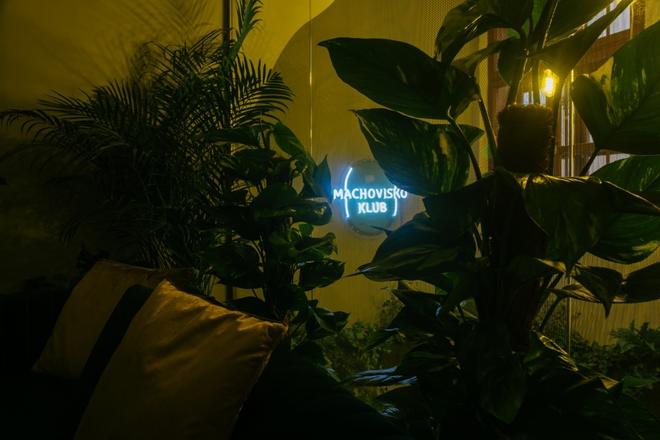 Low-threshold club Machovisko in Bratislava. (source: Archive of OZ IPčko.)
Low-threshold club Machovisko in Bratislava. (source: Archive of OZ IPčko.)
